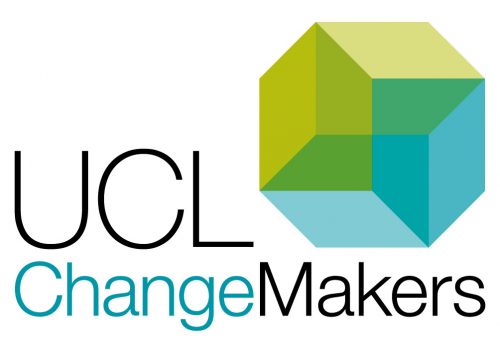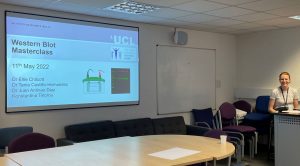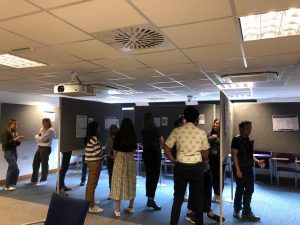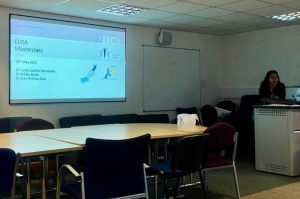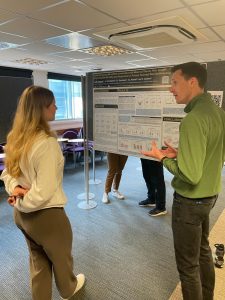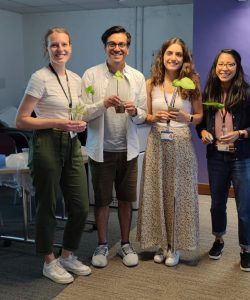THE TEAM
Student lead: Haoyue Guo
Support students: Cristina Garcia-Maurino Alcazar, Reshmi Mukerji, Alma Ionescu, Ana Correa Ossa (treasurer).
Staff leads: Professor Kholoud Porter, Professor Nigel Field
DEPARTMENT
Institute for Global Health
WHAT HAPPENED?
The project is about generating an interactive online platform for students to share their research and its impact using storytelling. The idea was to inspire thinking and learning around research impact through a fun way of storytelling, and to convey research impact from the perspective of the public. PhD students are able to create fictional avatars, who represent people affected by their research, on a world map and are to explain their research in terms of how it might directly impact them (e.g. my research will give a voice to women like Mrs A, who lives in India, has HIV, and has faced domestic abuse, in order to inform changes in the socio-legal framework impacting her life). They are also be able to link to other avatars to form a series of research stories that flow around the world. This will help students conceptualise their research impact, and provide an innovative mechanism to showcase the diverse research done by more than 50 doctoral students at IGH. We plan to run this department-wide first for PhD students, with the potential to expand faculty-wide and include staff research.
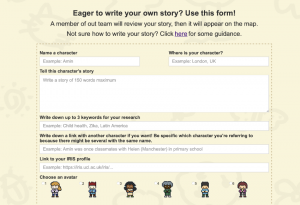
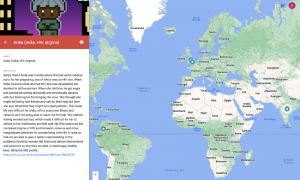
WHAT ADVICE OR ENCOURAGEMENT WOULD YOU GIVE TO SOMEONE THINKING OF DOING A CHANGEMAKERS PROJECT?
We would strongly encourage others to apply to a Changemakers project. The most important thing is to have a clear objective and a clear idea of the impact that your project will have on students and staff. Also, if you’re planning something technical (in our case, making a website), it is better to have someone on your team with relevant experience, which should allow you to have more control over and flexibility with the output.
